The best thing you can give your child is your time, love, affection, understanding and trust. Positive parenting incorporates all of them. It doesn’t mean you have to always be nice to your child even when they have done something they should not have. It just explains that the bond we have with our children is important and we should raise our child in a way that the child becomes more smart and independent.
Starting early is the key. A newborn child knows nothing and will learn everything that you show him or her. The first 6 years of a child’s life are the most crucial. The brain develops the maximum in these 6 years.
Positive parenting is not taking childhood from your child, but helping them to be better individuals in the future. Instilling in them family values is of so much importance to help them learn better and be better in future.
Many times we have heard parents saying, “It is okay, they will learn as they grow.” It is not necessary and also if they had learned they would have taken such a long time to learn that.
Why not start from today itself?
Now is the right time!!
In This Article
Here are a few of the positive parenting tips you need to incorporate in your parenting style, to raise a better, independent, loving and positive child.
1. Start early with positive parenting
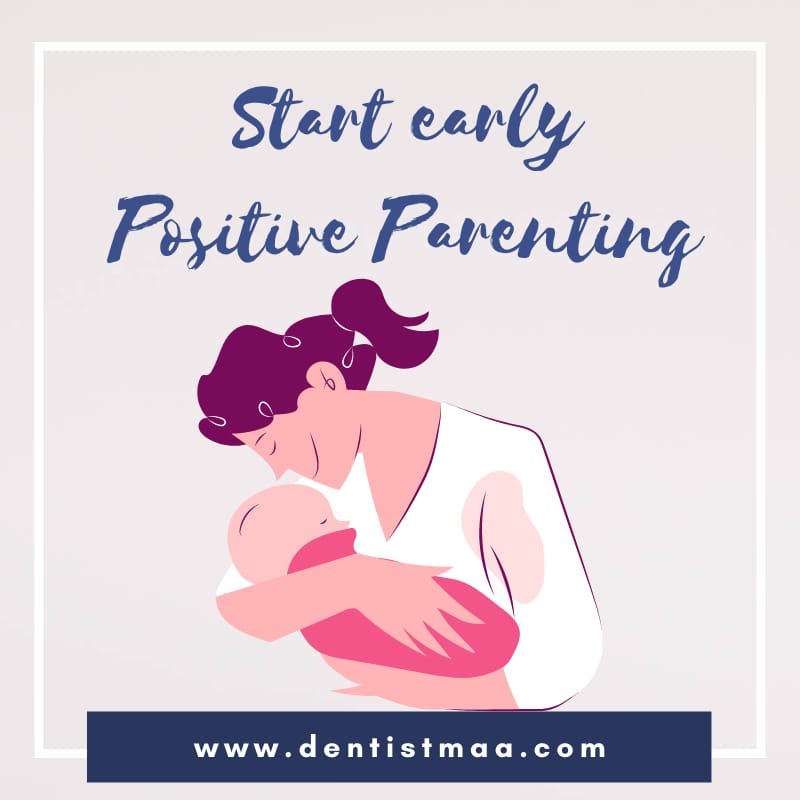
Starting early definitely works. You do not have to wait for the child to grow to start with positive parenting. It starts right from birth.
There is no such time as the child is too small to spend time with.
When you respond to a new born baby’s cry, it is positive parenting.
When you sing to your new born baby, it is positive parenting.
When you read a book to your new born baby, it is positive parenting.
Starting early will mould the clay (newborn) in a more independent, loving and positive way. The efforts that you will need after a few years when the child grows and you realize something you did was not right, will not be required.
Your child will already be listening to you, making decisions about right and wrong, understanding the situations, and behaving appropriately.
You will be less stressed, will have to put in less effort and will be more happy and so will the child.
2. Be there for your child

Time is what matters the most. Just giving birth to a child is not enough. Spending time with the child is what is most important.
Hugging, singing, responding, holding hands, and being there when the child needs you, is when positive parenting starts. Not just the mother but the father has equal responsibility in spending time with the child.
When you cuddle the baby, the baby feels safe.
When you talk to the baby the baby feels heard.
When you play with the baby, the baby sees you as a friend.
Reading books to the child, and participating in pretend play with them helps them learn.
For adolescents, listen to them and be there with them. Take a weekend off just to spend some quality time with your child. Understand them, as there would be a generation gap between the two of you.
Be Present!
3. Listen to your child
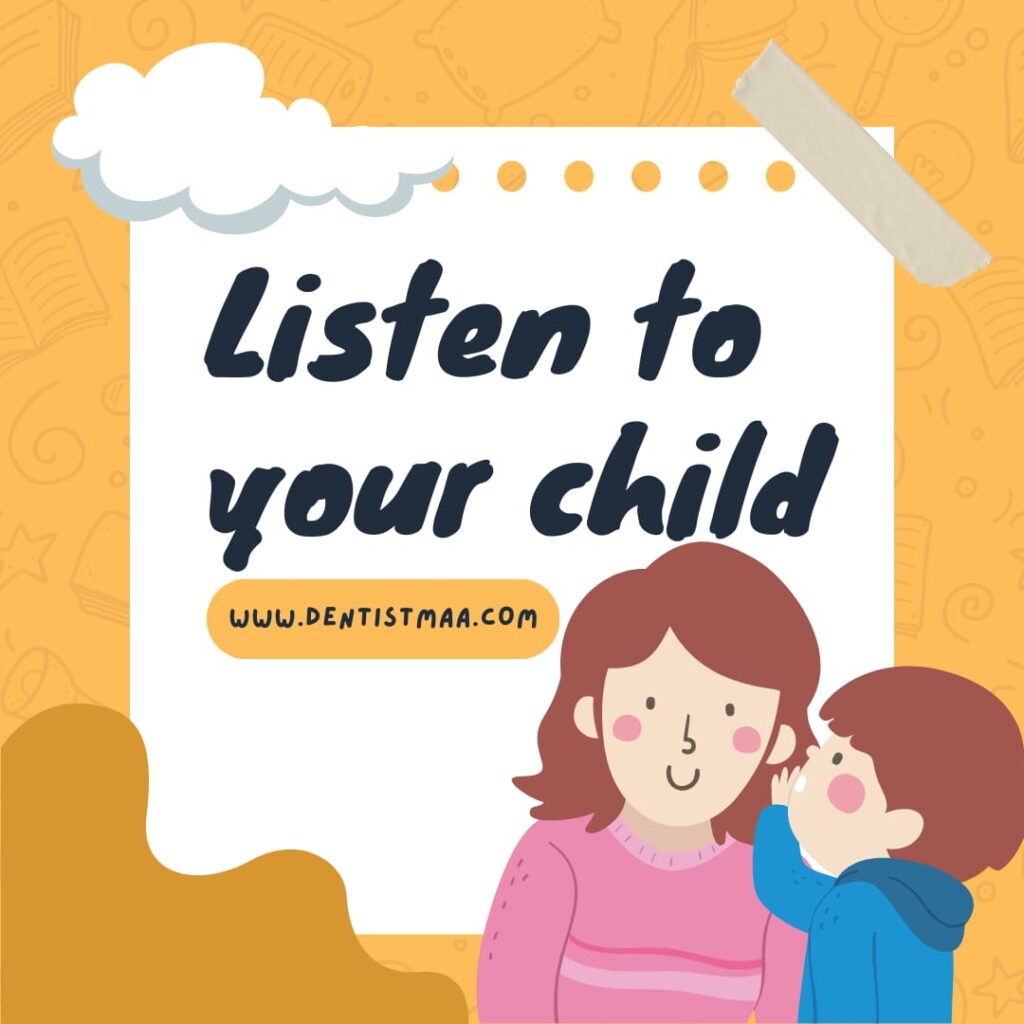
The next positive parenting tip is just to listen.
Sometimes parents just speak and do not listen. Do not make that mistake and listen to your child. Even if it is the slightest of the things, still listen.
If you do not listen to their little things now, they will never tell you their big things later on in life. They will get distant and away from you. So listen!
4. Be loving but firm

Yes! you can be loving and firm at the same time. Yelling at the child for no reason is no solution. Talk to the child, be polite and calm but firm in your tone. There should be authority, not anger and regression.
If you yell at a child all the time and call them names, the child will learn the same from you, show the same behaviour when they are upset, call out names to other kids and yell at them. They will also stop listening to you as they will believe that this is what you know.
Being loving is many time mistaken for not being firm. But that is not the case.
For example, your child insists on eating a chocolate when she has already had one, at this point the child is not looking at the consequences but just wants the chocolate because she loves it. The emotions are overflowing. You yell at the child right now and the child will start being more opposing, throw tantrums, and will just not understand the reason why you are saying no.
Instead, deal with the situation calmly. “I know you love chocolates, but you have already had one. Don’t you think you might have an upset tummy if you eat too many?” Let the child respond and decide. If you have been following positive parenting your child will not eat the chocolate, as she understands the consequences, as you would have explained it to her during one of your small talks.
5. Focus on the reason for the child’s behaviour

If your child is behaving in a way you find inappropriate, think and find out what is the reason behind the same. The child has emotions that most of the time they can not express, or they do not know how to yet. So, as a parent or a caregiver, it is our duty to understand if a child is behaving in a certain way then what is the reason for the same. Here comes the role of positive parenting.
E.g. the other day my daughter was having a video call with her grandparents and aunt, and telling them all about her day, when suddenly I asked her to also tell them about the tomatoes she has been waiting to ripen, from the plant she planted. Now this was a touchy topic for her, as she loves tomatoes, especially the ones in the kitchen garden. She felt sad while talking about it, lost all interest, and got cranky and upset. So, what we all did was disconnected the call very pleasantly, and after that, I distracted her mind, played with her, had a good laugh, and in a matter of minutes, all was just fine.
We had been explaining to her for a long time that it takes time for the plants to grow and fruits to ripen, but as she was not in a state of mind to understand and accept it at that moment, I distracted her instead. The other approach would have been yelling at her how many times I have told you earlier, but that would have just created more stress and chaos.
6. Be clear, so that they do not get confused
Being clear about what is to be done and setting boundaries is positive parenting. Yes, it might piss off your 3-year-old, but eventually, they will understand that there is a rule and limit to everything that is done.
Does your child just want to run off to play once the meal is finished? Tell them that unless and until they keep the plate for washing, and wash their hands and face, they will have to wait to play. Yes, they will get a little impatient in the beginning but slowly it will become a habit and you will be thrilled to see that you need not remind them again and again.
Don’t confuse the kids by doing the work that they have been assigned. They will not get into the habit and will be confused whether it is their job or not.
In return, you have a calmer self, less work to do, and you are raising an individual who will know what his or her duties are.
7. Explain rather than ignore
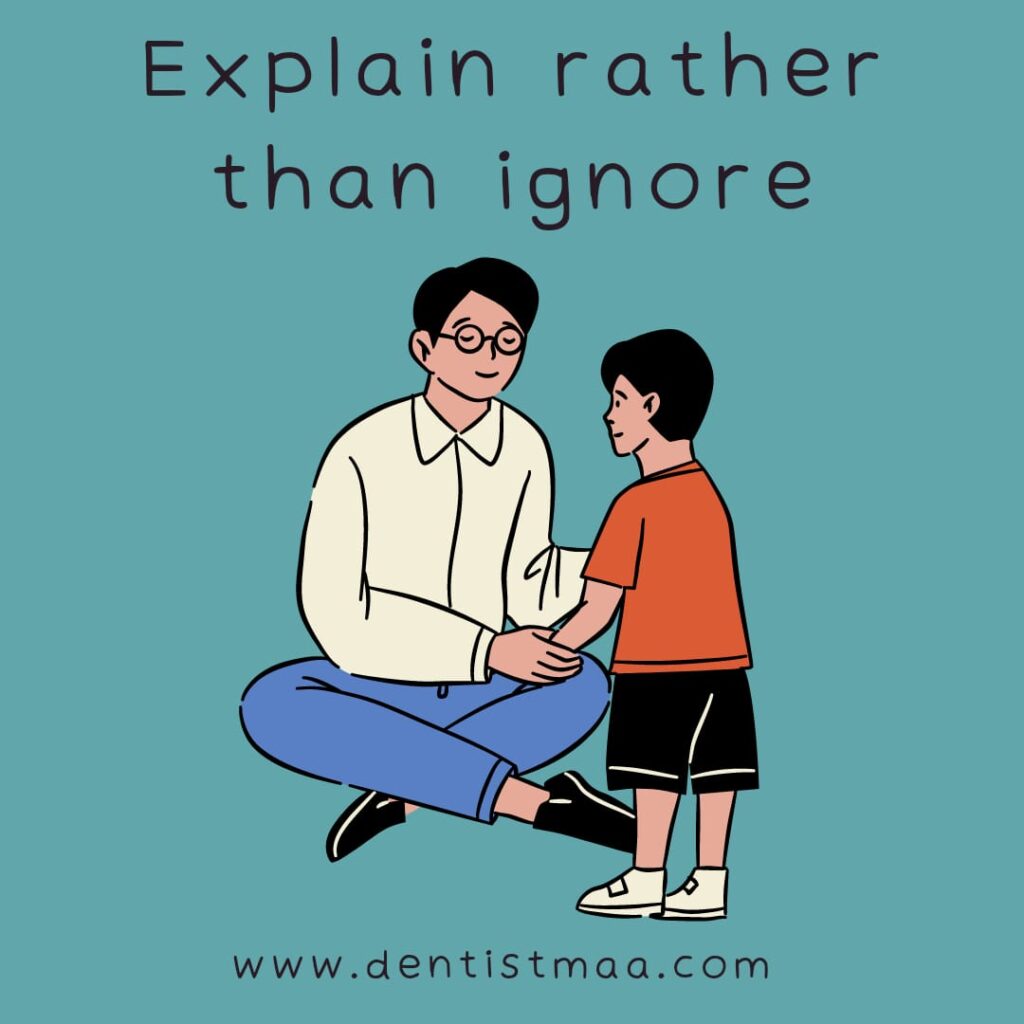
Toddlers ask a hundred questions a day, and we can answer most of them, but we just don’t. Maybe because we consider it to be less important but, that is not the case. Answering their questions will help them in keeping their curiosity level high. Once you stop answering, soon they will stop asking. And that is not positive parenting.
Never say “Because I said so.” Suppose a child asks you why he or she needs to do something or do it in a certain way then never say that because you have asked them to do so. Explain the right reason behind the act or the work. This will help their brains to understand and analyse things better.
8. Be patient

Be patient with the child. You won’t see the results immediately. Give your child time to understand what you have changed in your parenting style (positive parenting).
If you are following positive parenting from day one, you might see the results better and faster. But still, if the child is misbehaving or is upset, do not give up. They are tiny and still need time and patience, and they need you. To be there for them when they are upset and not themselves.
9. Positive Reinforcement
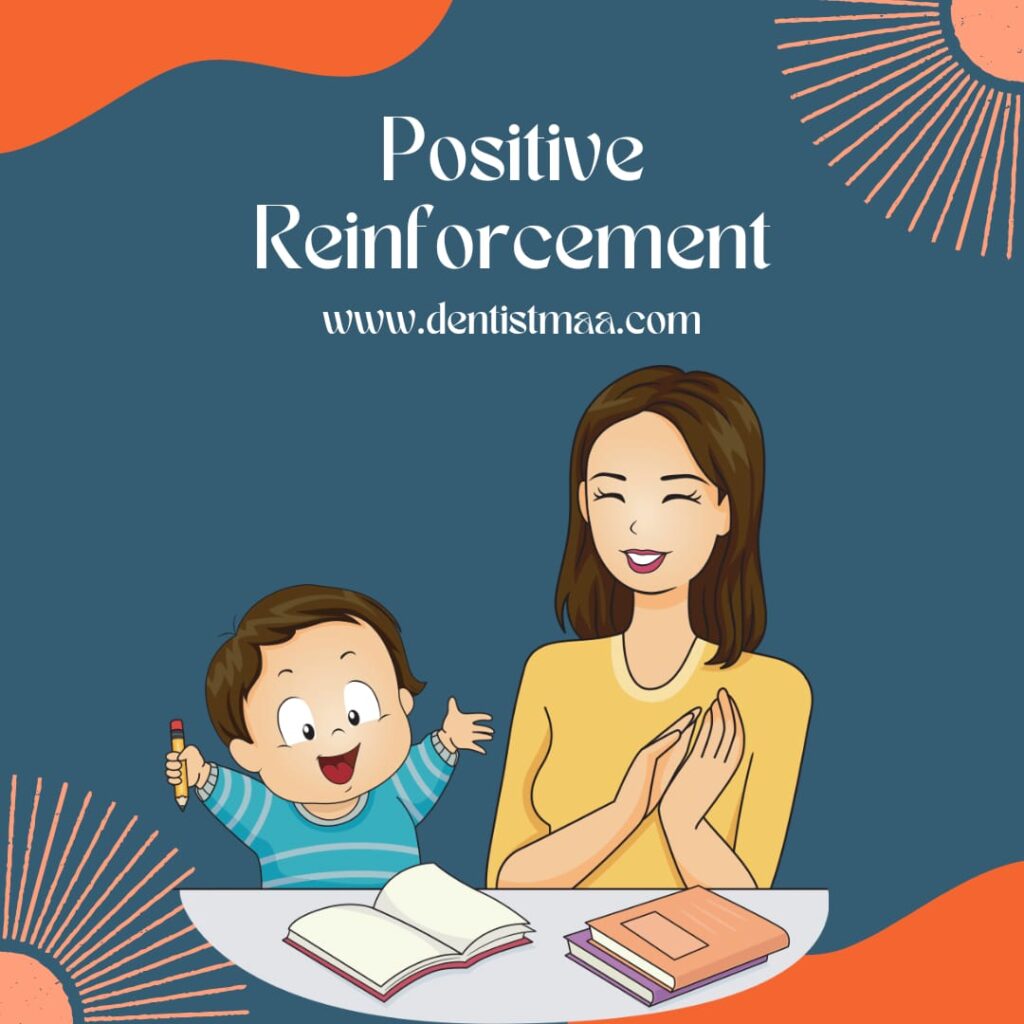
Criticizing someone is easy, but appreciating and showing positivity is what is required in positive parenting.
Just telling your child that you saw what the child did is what makes the child’s day sometimes. Appreciating the small things they do helps them build self-confidence, which goes a long way in taking them ahead in life. Respecting what a child wants is also important.
For example, your child has started using crayons and is scribbling all over the sheet of paper, and comes and shows you his or her work, and you just ignore it saying what a mess this is or there is nothing pretty about it, do better next time. It will not just make the child feel bad and hurt but lower their self-confidence and maybe the child will start avoiding it altogether.
When you feel your child did something good or new, appreciate the child or do some positive reinforcement. Sometimes a smile or a hug is all that is required.
10. Give a time out to yourself

If you find yourself getting angry or overwhelmed because of something your child did, just take a break. Giving yourself a timeout can reduce the stress from the situation and calm down things. There is nothing wrong in taking a break, you are not ignoring your child.
Tell your child that you are leaving the room for a few minutes as you are a little upset and you will be back. Take a few deep breaths and calm yourself down. Once you feel fine and are thinking right then go back to your child, give a tight hug and tell in a loving and firm voice why you were upset. The child will understand.
Giving time to yourself is a very important tip for positive parenting.
11. Tell Show Do
A very famous behaviour management technique introduced by Addleston is apt in most situations.
You tell a child not to yell. But when you are upset you yell. How will the child learn and understand?
The child won’t.
So, if you want your child to behave well, you will have to behave well in front of the child. Kids do what they see and not what they are told to do.
Doing what you want your kids to do, is a very important positive parenting tip, which should always be followed, as action speaks louder than words.
12. Use time in, avoid time out
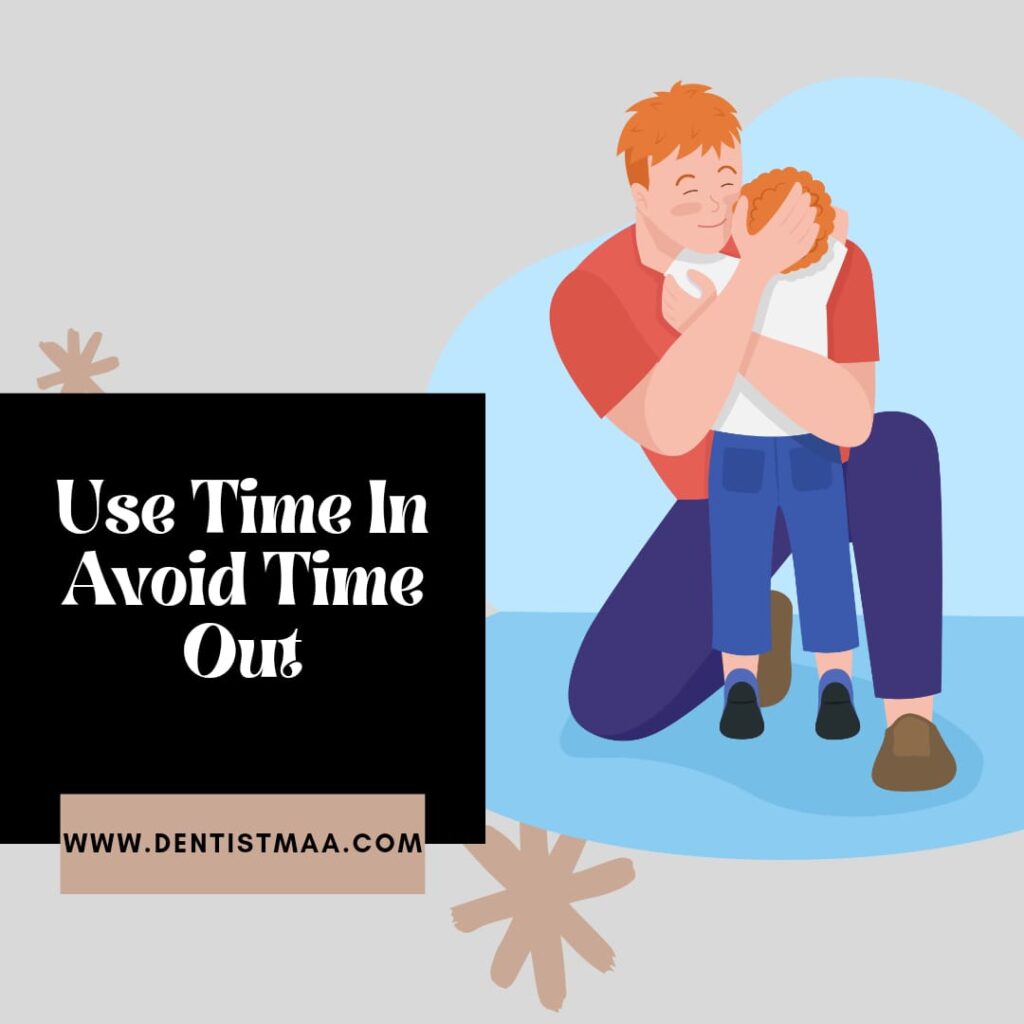
“I said go to your room right now.” This is a time-out. This gives the impression that the child is not good enough for you.
Whereas, time in is when you sit with your child despite the behaviour of the child and help solve the problem. Again, you have to be loving but firm. You can also just hug your child, and sometimes you will be surprised the child will give in and calm down.
Time in is what brings you closer to your child and the bond strengthens. Time is an essential part of positive parenting.
13. Age-appropriate behaviour and development of brain
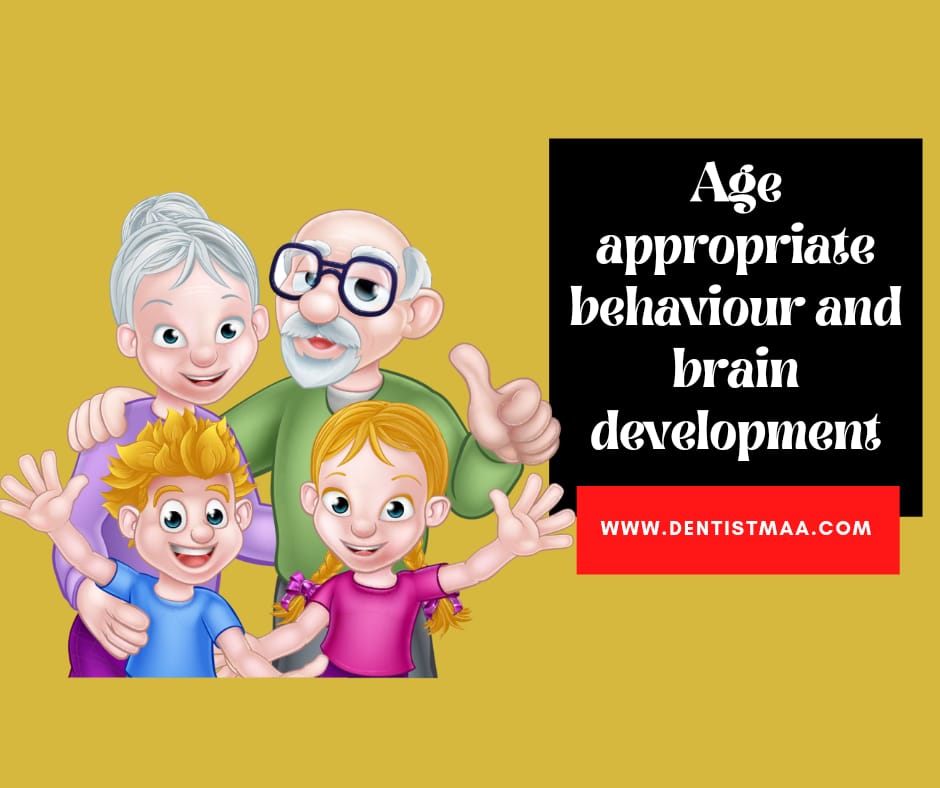
Certain behaviours are right at a certain age but not at the other.
A toddler throwing a tantrum is right but not a 10-year-old.
For toddlers and preschoolers, the brain that deals with reasoning and consequences is not fully developed.
Your toddler is getting late for school but instead, he or she is playing with the cars. You will be getting mad right? But here what we need to understand is they do not understand what will happen if they get late for school. For this, you need to get up early and let them do all the tasks peacefully.
What will be avoided is the chaos, the stress and the hurry.
14. Choose discipline, avoid punishment
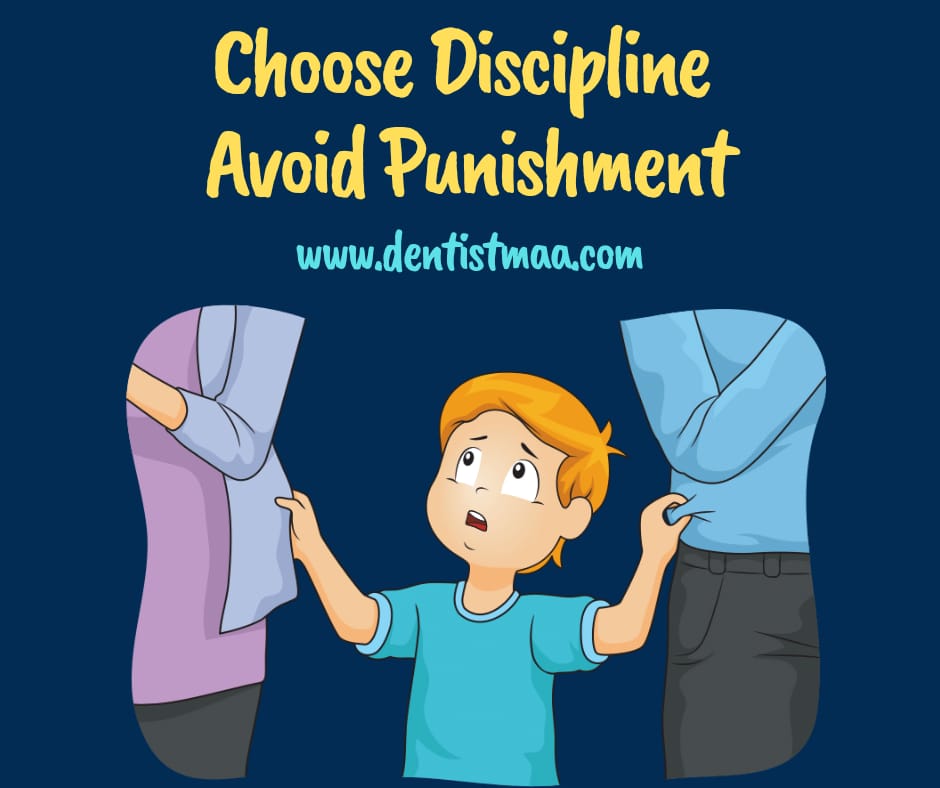
Avoiding punishment and instead letting the child face the consequences (only if it is safe), is what is required in positive parenting.
For example, in winter you ask your child to wear a sweater before stepping out as it is very cold and windy outside. But the child denies it. Just say okay, but carry the jacket along. Once the child goes out and feels cold, the child will come to you and ask for help. There is when you explain why was the jacket so important. The next time they go out, they will wear their jacket.
If you were not following positive parenting, you might have forced the child to wear the jacket, and there might have been crying and yelling.
15. Avoid shaming
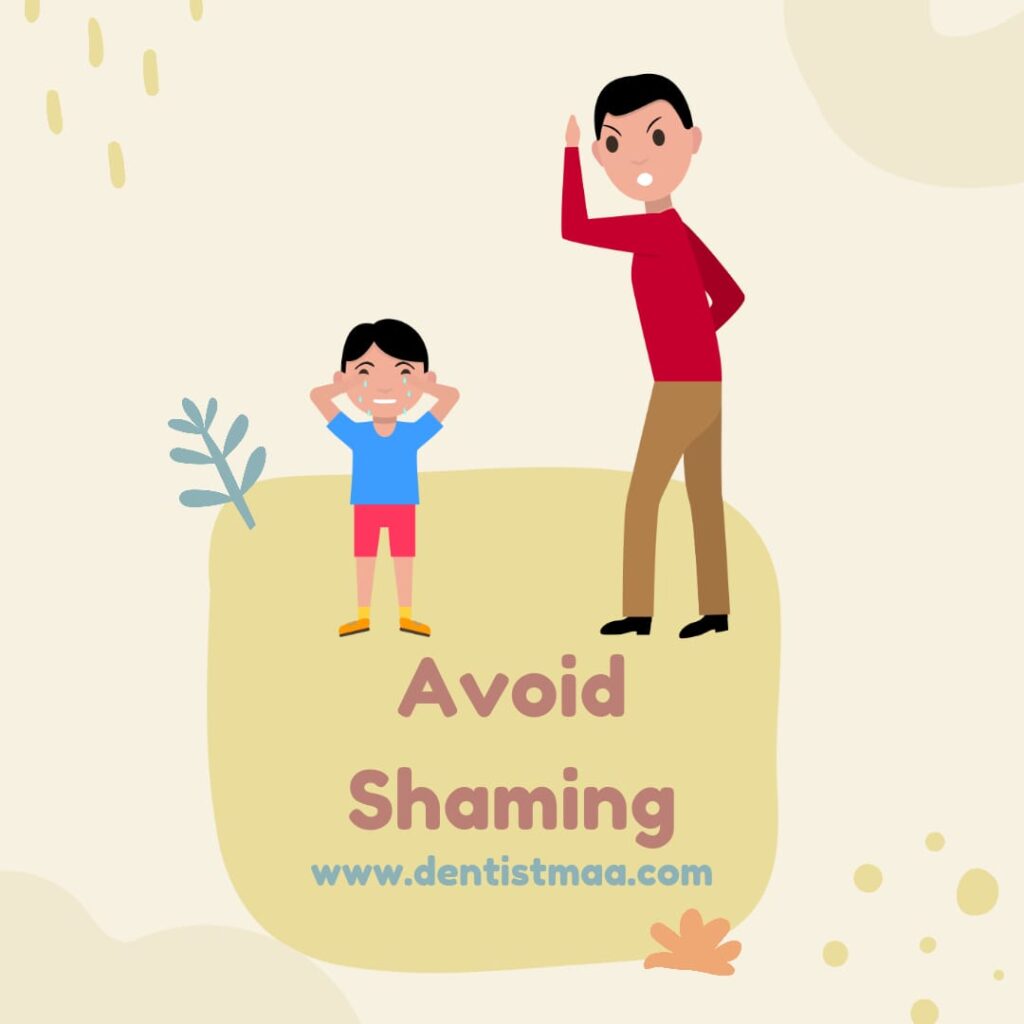
Shaming is one of the worst things we can do to our children. Calling them names, blaming them, and accusing them of things they should have done, go a long way with them.
Your child’s room is dirty? Don’t yell at them and ask them to go and clean, instead ask them, “Your room looks a little bit messed up. Shall we both clean it together?” That is what positive parenting is.
It not only prevents shaming but also helps the child know that you are there for them whenever they need you. And also you get a clean room!
Shaming and accusing a child of something makes them do the same even more, or they might follow the same behaviour with their friends.
To sum up, positive parenting is a very pleasant way in which you can raise your child. Less stress, less chaos, more love and understanding. And if started from the beginning it would be a surprise to see the child groom into an understanding, friendly, independent human being. If not then now is the time. Do not delay or postpone. It might take time but the result will be fruitful.
Happy Parenting!
Also Read: Positive Parenting: What, Why and How!
Disclaimer
This blog provides general information about positive parenting. The opinions and content on this blog is only for conversational purposes and should not be interpreted as medical advice about any particular individual. If the reader or any other person has a medical concern, he or she should consult with an appropriate licensed medical physician or a health care provider.





Pingback: Grinding of Teeth in Toddlers! - DentistMaa
Pingback: 10 tips to keep kids warm and cozy during the winters!! - DentistMaa
Very nice article on Positive Parenting Tips for parents. Would recommend this article to everyone looking for Positive Parenting Tips for their kids
Ver well explained
Well explained about Positive Parenting
Keep it up